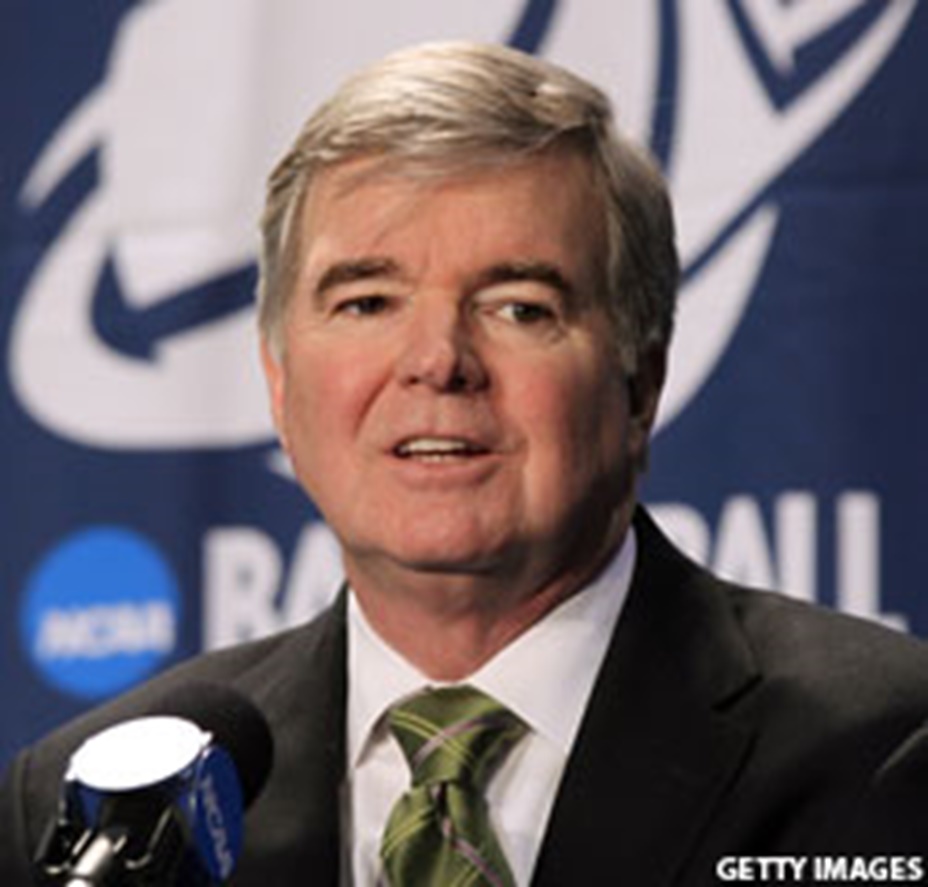NCAA President Mark Emmert said that he believes that “two significant new rules -- a $2,000 stipend toward the full cost of attendance for athletes and a four-year scholarship rather than year to year renewals -- will survive override efforts at this week's annual NCAA convention,” according to Michael Marot of the AP. Emmert said, "They make great sense. They were adopted in a very clear effort to support our students, and I think, in the end, they will do that. Whenever you move as big and as quickly as we did, you have people that want to make changes. But you don't go back on the principle." Though most schools “strongly support the tougher academic standards backed by Emmert, 161 of 355 Division I schools signed an override measure against the stipend -- enough to suspend the rule for now.” The pushback on the two “hot-button issues suggest to some that Emmert has a full-fledged revolt on his hands.” But override motions “occur every year and these are the only two that have generated more than 10 signees this year.” With the stipend currently under suspension, the BOD has “three options: Rescind it, modify it and send it back to the membership for another 60-day comment period or allow the full membership to vote.” If the full membership votes, “it would take a five-eighths majority (221.9 votes) to scrap the rule.” Emmert believes that the board “will modify the stipend's two provisions that have caused the greatest concern -- Title IX compliance and the budget-busting impact of immediate implementation.” He wants “clearer language regarding how the $2,000 allowance would apply to women's athletes and sports with partial scholarships.” Emmert also said that the start date for the allowance “could be delayed to give athletic departments time to adjust their budgets” (AP, 1/10).
STIPEND ISSUES: In Atlanta, Tim Tucker notes some schools said that they “could not afford to pay the stipends and would be at a recruiting disadvantage if others did so.” Kennesaw State AD Vaughn Williams yesterday said that he “has concerns about the cost and about the unlevel playing field that would result if schools in some conferences offer the stipends and those in others do not.” Williams said, “The intent of the rule, I understand -- how can we assist the student-athlete in as fair and equitable a way as possible? I also see it from the other end -- maybe we have to lessen the intensity (of the demands on student-athletes) so that they can get a job in the summertime.” Tucker notes the main arguments for the reforms were that the stipends “would cover some of the incidental costs of college attendance beyond the tuition, room and board, books and fees covered by full athletic scholarships and that the multi-year scholarships would protect athletes from being cut loose merely to free up a spot.” Georgia football coach Mark Richt said, “The stipend, I hope (athletes) get. What we’re talking about ($2,000) is very reasonable, not exorbitant. But it does fill in some gaps for a guy who is in need and frees up a way to go on a date without asking his parents, who may or may not be able to help, for money” (ATLANTA CONSTITUTION, 1/11).
PROBLEMS TO DEAL WITH: In Tennessee, Mark Wiedmer writes Emmert's problems “are almost endless in nature.” From whether “to penalize Penn State for its role in the Jerry Sandusky sex-abuse scandal, to modifying the BCS, to how to pay all athletes -- even if Emmert insists on calling them stipends -- rather than just football and men's basketball players, the NCAA seems to be at an uncertain crossroads in almost every facet.” Then there is college athletics' “overall image, which has been shredded these past 12 months by the Penn State and Syracuse messes as well as the ordinary cheating scandals at Tennessee, Ohio State and Miami, to name but three.” Emmert said, "We're in a curious moment where people are cynical about most everything institutional ... and they're cynical about athletics. So there's a very special need for us to go above and beyond expectations, and to demonstrate that these games are very special and different from professional athletics" (CHATTANOOGA TIMES FREE PRESS, 1/11).




